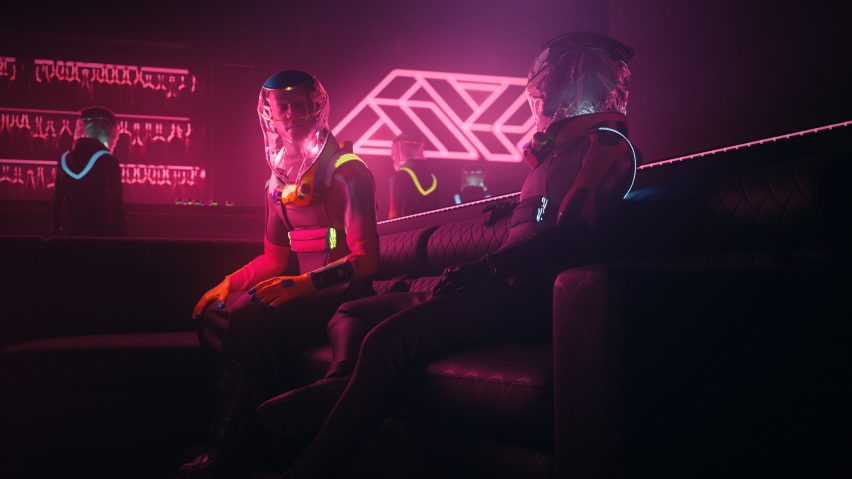
Production Club designs drink- and vape-friendly PPE suit for clubbing during a pandemic
Creative studio Production Club has designed a personal protective suit for clubbing in the time of coronavirus, which includes features for phone integration and beverage and vape consumption.
Production Club's concept for the personal protective equipment (PPE) suit, called Micrashell, is designed to offer people a way of safely gathering and partying at gigs and nightclubs during a pandemic.
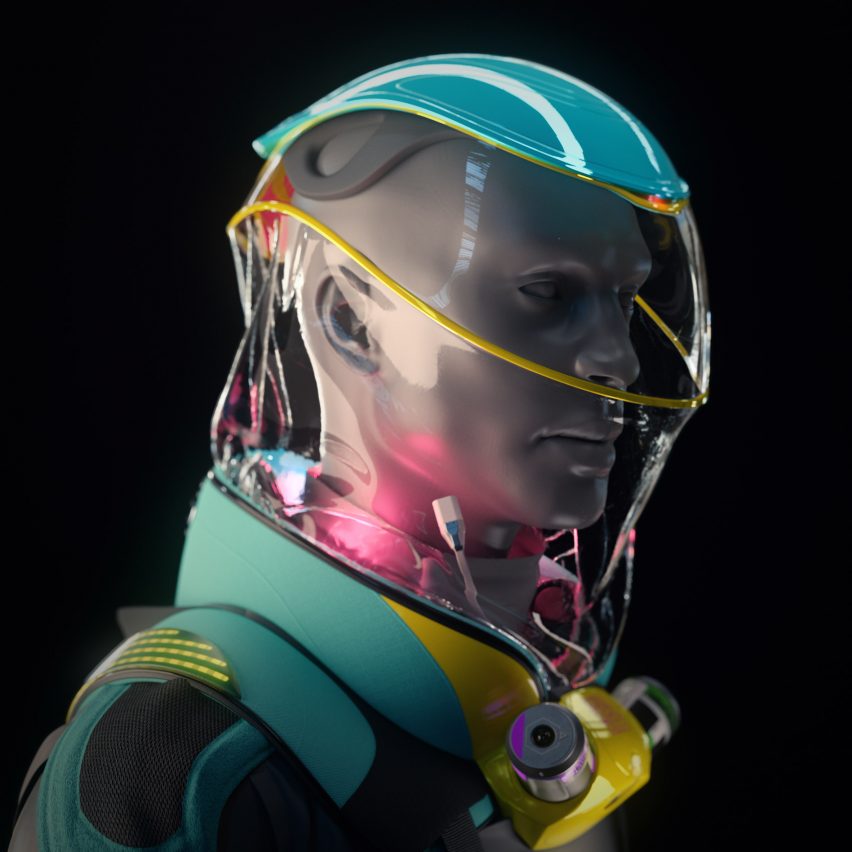
Described by the studio as "the future of human interaction", the design comprises an air-tight top suit and helmet that covers the hands, arms, upper torso and head.
It has a number of features that cater specifically to its intended party environment, including an in-suit beverage and vape supply system, built-in speakers and smartphone integration.
As the creators told Dezeen, they wanted the suit to be less "science fiction" and more fashionable and approachable. They took design cues from brands like Nike Lab and Ambush Design, and designers such as Yohji Yamamoto.
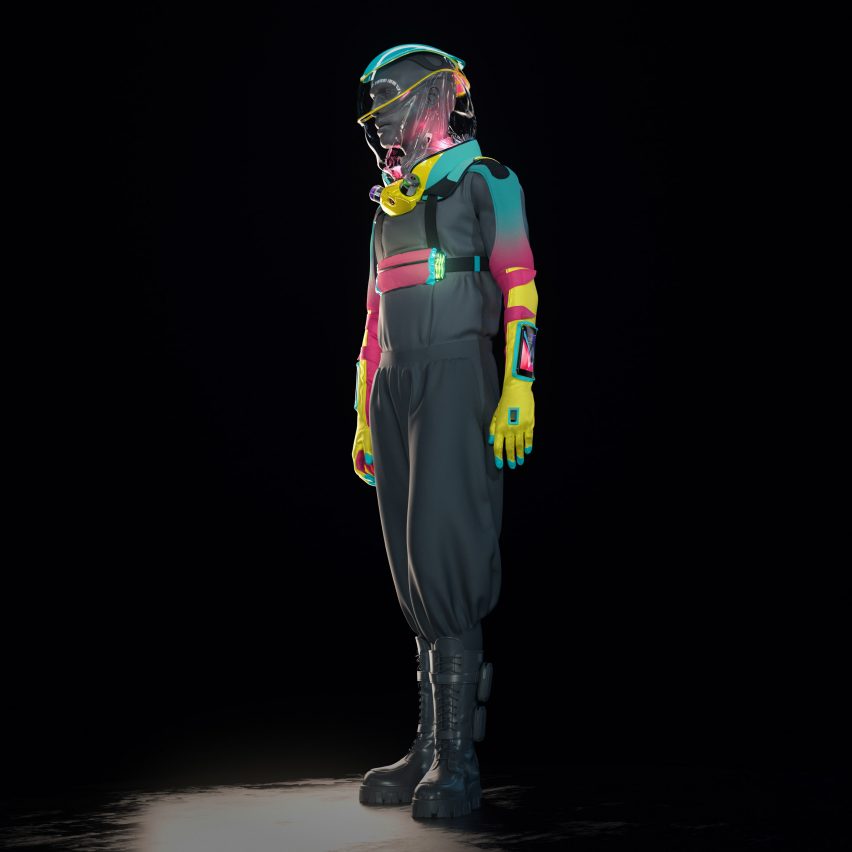
"The Micrashell was born from concern for our community, and concern about reckless social behaviour," Miguel Risueño, the studio's head of inventions, told Dezeen.
"After witnessing the events industry fall into an unprecedented recession, and seeing large groups of people ignore social distancing directives in order to go out and party, we felt obligated to address both issues and find a solution that benefited all," he continued.
"We have been physically socialising in a similar way to what we have done now for tens of thousands of years, so the consequences of an abrupt cut in human-to-human interaction for a long period of time could be catastrophic."
"The bottom line is mental health, as society can’t positively evolve if we are unhappy," added Risueño.
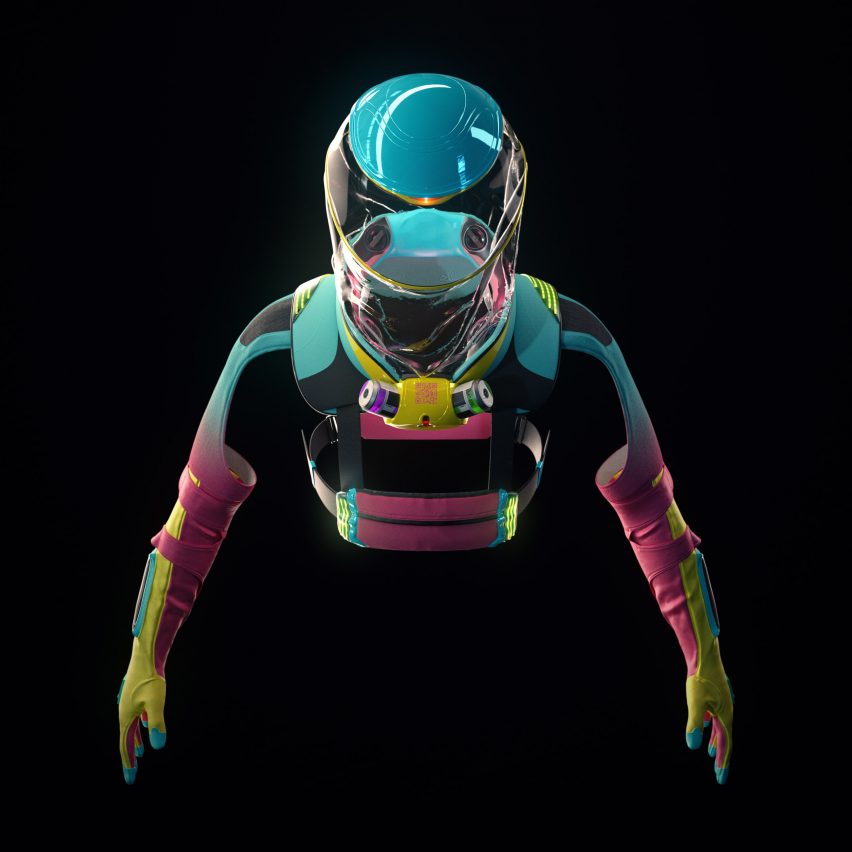
As the suit only covers the top half of the body, wearers can easily perform normal activities while still being protected, such as using the restroom or even engaging in sexual intercourse, the studio said.
So-called loading chambers positioned on the chest underneath the helmet allow users to safely consume drinks and vape via "easy-snap" sealed canisters that aren't accessible to anyone other than the wearer and the bartender.
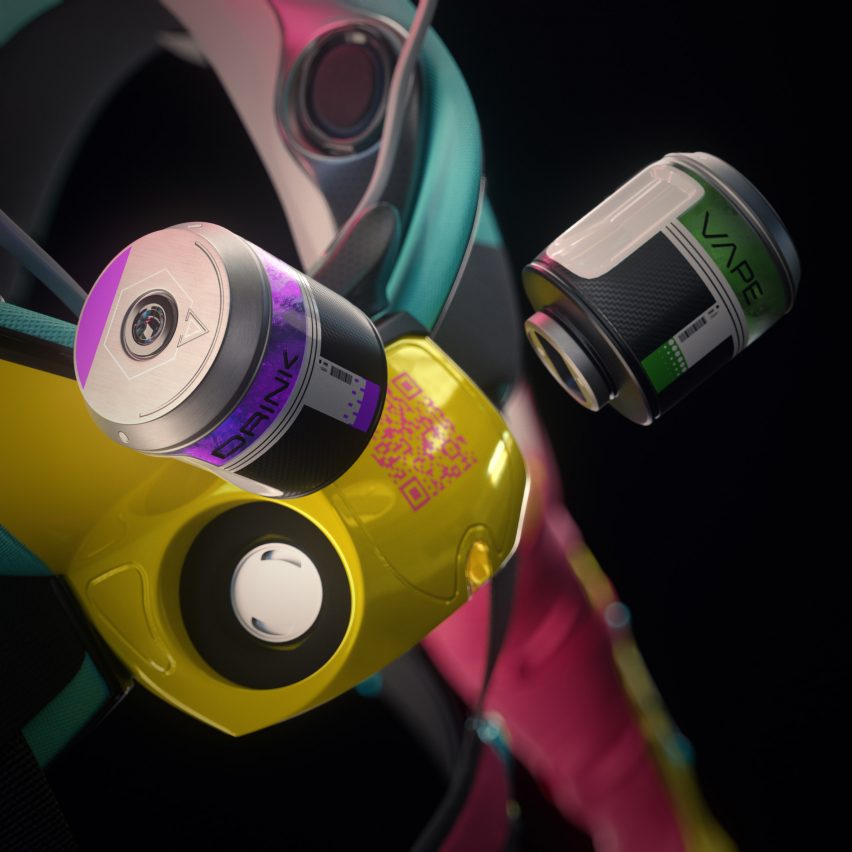
The studio are currently in the process of creating prototypes of the concept in-house. Thanks to the "simple" design they hope to have the first batch of the suits available for testing in a few months.
The air-tight top-suit and helmet are made from a high-performance and cut-resistant fabric that is also easy to disinfect.
A clear but stiff shield protects the eye area while allowing for easy visibility. The rest of the helmet is made from a softer, yet still see-through material, to allow the user to move their neck around more freely.
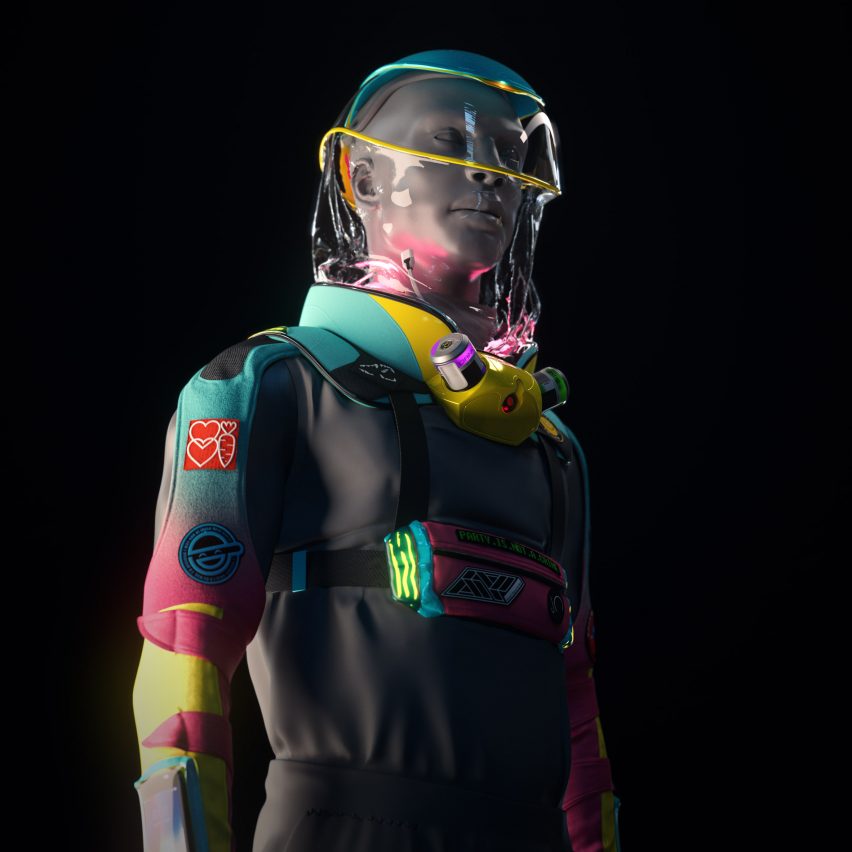
The helmet also features a particulate filtration system based on the N95 standard approved by the National Institute for Occupational Safety and Health (NIOSH).
A wireless voice communication system is integrated into the suit, enabling users to control the audio levels of different external sources individually, as well as modifying how their own voice is presented to others in real time.
An internal speaker system plays live music to its wearer in three modes: dry (directly streamed from the DJ or band), wet (as an emulation of the room's sound based on psychoacoustics), or as a passthrough from the room via the suit's embedded microphones.
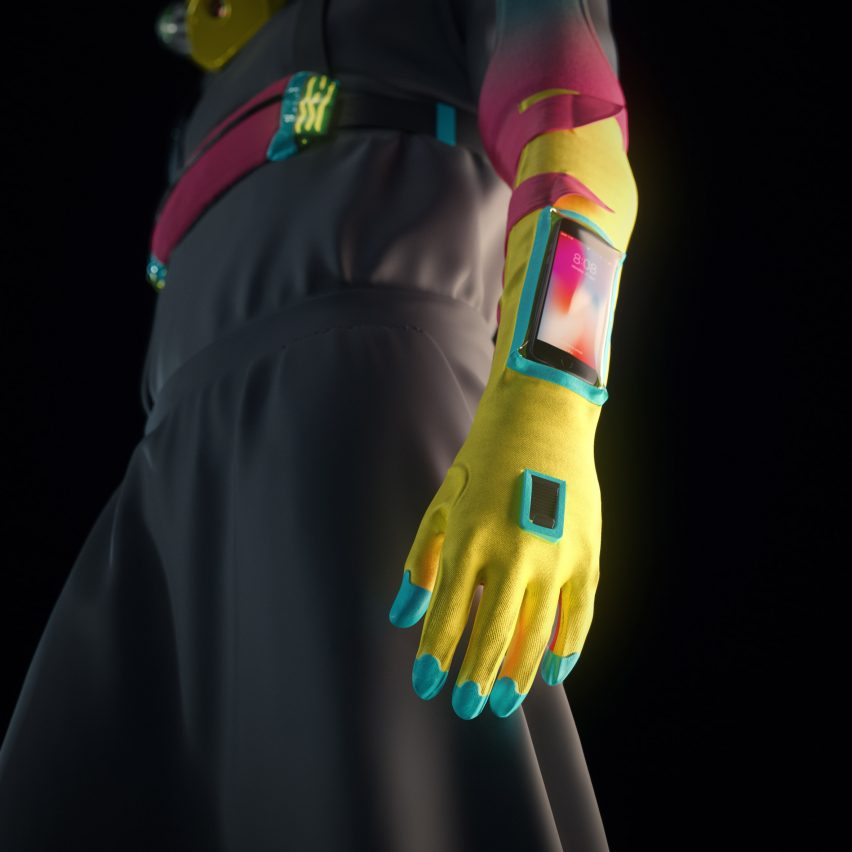
A custom pocket in the suit holds and connects to the user's smartphone to allow them to control certain features via their device. This includes a camera that can be used to take photos and videos of the event.
The suit is secured to the body with expandable straps, making it suitable for people of different sizes. These straps can be customised with add-ons such as patches, velcro, magnets and hooks.
Rows of RGBW lights can also be customised to act as indicators of the wearer's mood, needs and messages. For example, a rainbow lighting effect across the suit could express joy, while a static red light could express that the wearer is busy.
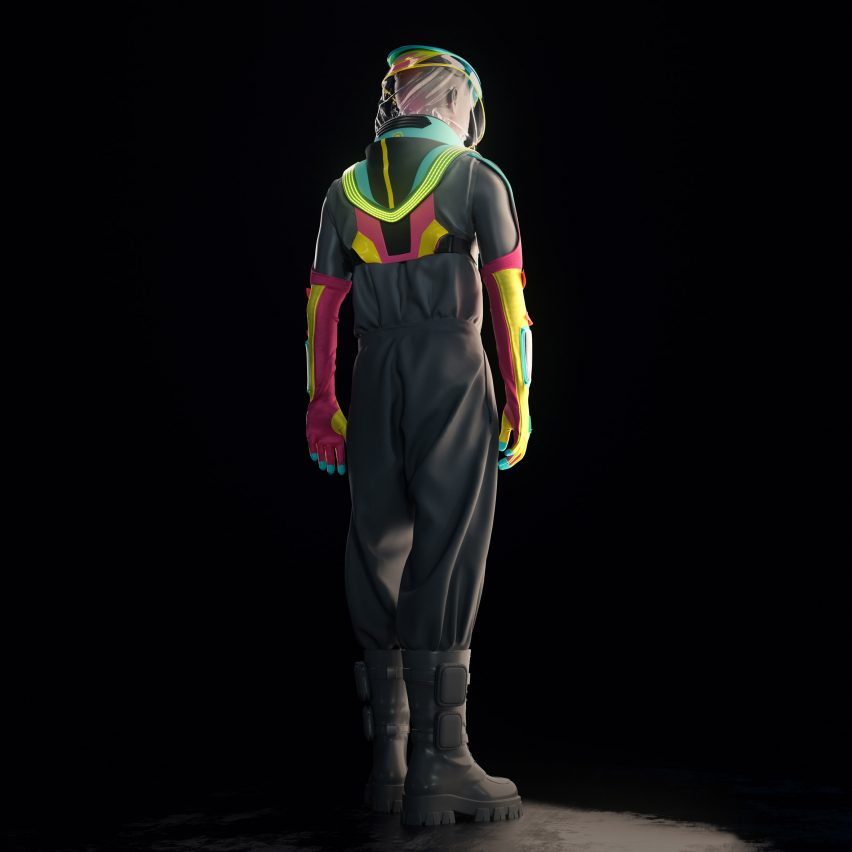
This is the first time Production Club – a multidisciplinary studio based in Los Angeles and Spain – has delved into product design. Usually its work involves creating immersive experiences for the music, tech and gaming industries.
The company has previously designed installations and events for artists like Skrillex, Grimes, Zedd and The Chainsmokers, as well as companies such as Amazon, YouTube and Epic Games.
The team worked in 12 hour shifts between Spain and Los Angeles until the Micrashell design was completed, in a bid to provide solutions to those whose work depends on social interaction in close proximity.
Many other architects, designers, institutions and brands across the globe have also been focusing their efforts on making face shields to help the health-workers fighting coronavirus.
Foster + Partners designed a laser-cut face shield that can be easily disassembled, sanitised and reused after wearing, while Nike used materials usually found in its shoes and clothing to create a face shield that it is distributing to hospitals in Oregon, USA.